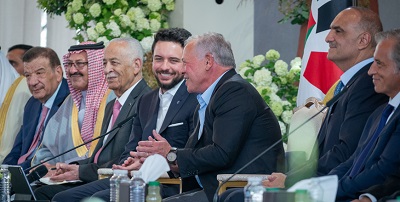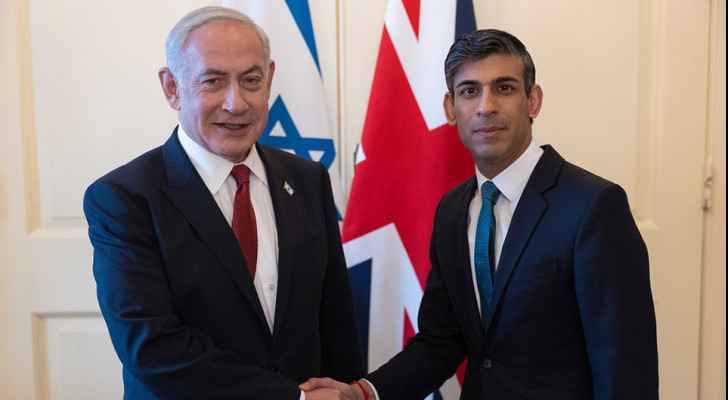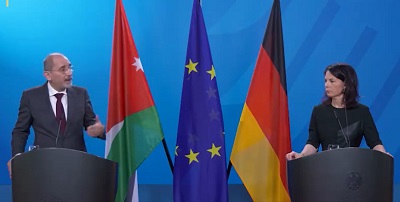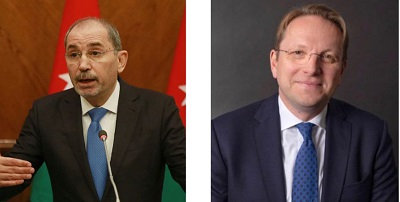Syria continues to unravel in post-ISIS war - By Huda al-Husseini, Asharq al-Awsat.
The war in Syria has not ended. In fact, the phase of ‘post-ISIS wars’ has just started. Syria remains a dangerous link between regional conflicts and the great powers, despite the defeat of ISIS in the east. The recent confrontation between Iran and Israel in Syria is only one of the few possibilities that could fuel the next phase of civil war in Syria.
A messier quagmire
Turkey has opened a direct confrontation with the People’s Protection Units in the northern Kurdish town of Afrin. Turkey, Iran and Russia are also competing with each other in a three-way struggle over Idlib and the downing of the Sukhoi-25 plane on February 3 is a sign of this rivalry. Meanwhile, the US-led coalition is encountering intense challenge from the Russian-Iranian coalition after US warded off a major pro-regime attack in Deir al-Zour on July 7 last year.
Iran and Hezbollah are exploiting the terms set for the ‘de-escalation zones’— a deal brokered by Russia, Jordan and the United States in southern Syria — in order to develop a military infrastructure along the Golan Heights. Israel and the US have failed to stop this development or reverse it. Israel has repeatedly asserted its “absolute freedom” to act in response to future violations of its red lines by Iran, including the establishment of Iran’s permanent military base in Syria and transfer of advanced weapons to Hezbollah through Syria. Israel fears that Iran will use Syrian territory to launch attacks or create a ground corridor from Iran to Lebanon after the fall of Abu Kamal (on the Iraqi-Syrian border), allowing it to transfer weapons more easily to Hezbollah.
The escalating increase of these incidents is not a coincidence, but a predictable consequence of the upsurge of the post ISIS wars in Syria. America’s opponents in Syria want to distance it from there and from the entire Middle East in the long run.
Russia and Iran have deliberately attacked US forces and their partners in eastern Syria. Hundreds of pro-Syrian fighters have launched a coordinated attack against the most relied open US allies, the Syrian Democratic Forces in Deir al-Zour, and the United States has responded with successful strikes to protect these forces, killing more than 100 Syrian soldiers. According to informed sources, Russia, Iran and the Syrian regime planned this process early, and began preparations for the attack weeks ago with the aim of increasing the Iranian presence east of the Euphrates River to seize oil and gas fields. For months, Russia and Iran have been militarily trying to reach the eastern Euphrates areas controlled by the Syrian Democratic Forces, including the city of Raqqa, as well as oil and natural gas fields east of Syria, and hand them over to the Syrian regime.
The Idlib imbroglio
For its part, Turkey is successful in its campaign against pro-regime forces in northwestern Syria and its focus is moving away from Afrin. Turkey will continue to give priority to maintaining a safe haven for the Syrian opposition in the Idlib province, which is controlled by al-Qaeda. The Kurdish armed forces have deployed a convoy of more than 100 armored vehicles to establish a control center near Al-Eiss, a key location on the front lines between opposition groups and pro-regime forces South of Aleppo. Turkey is working to establish two additional ‘control canters’ in unspecified locations in northern Syria. Turkey has also taken advantage of the de-escalation zone in Idlib and parts of the province of Aleppo, which was agreed upon by Russia, Iran and Turkey in the Astana talks.
Observers believe that Turkey is seeking new assurances from Russia to maintain the safety of its troops in the province of Idlib, but these guarantees are still not enough. According to observers, Syrian President Bashar al-Assad, with the assistance of Iran, plans to disrupt any agreement that would establish a long-term Turkish presence in Syria. Iran believes that the Turkish deployment is an attempt to block any future attack by regime supporters to lift the siege on the two Shiite towns of Fu’aa and Kafriya, near Idlib.
On the other hand, Turkey could try to exploit these tensions by pinning a wedge between Russia and Iran over the de-escalation zone in the Greater Idlib province, and there is a possibility that Turkey will escalate its participation in Idlib in part of a reaction to the continued progress of the regime and its loyalists towards the main town of Sarqib, controlled by the opposition in the Idlib Governorate. Located along the M-5 strategic highway between Hama and Aleppo, Sarqib provides an ideal starting point for operations towards Al Fu’aa and Kafriya or Aleppo.
Turkey has deployed troops in Idlib province after the Al-Sham Liberation Movement (al-Qaeda’s faction in Syria) claimed responsibility for the fall of the Russian Sukhoi in Idlib. Turkey may have provided MANPADS to signal its dissatisfaction with the ongoing Russian air campaign to support the regime's forces in Idlib. It had previously provided military equipment to the opposition forces in an attempt to stop the continuous attack of the regime on the air base of Abu al-Duhur in the eastern province of Idlib. Turkey will continue to give priority to its efforts to protect its ongoing operations against the People's Protection Units.
Confrontation over Golan Heights
It also seems that despite all the demands calling for self-control, Israel and the Russian-Iranian coalition are ready for a future confrontation in the Golan Heights. Iran and Hezbollah succeeded in forming a network of foreign and local fighters through Syria, under the umbrella of the Russian armed forces.
Iran and Hezbollah also exploited the de-escalation areas adjacent to the Golan Heights. Each party is working for its own interests in Syria, and no one cares about the continued killing of Syrians or the destruction of the country. Russia's guarantee of Bashar al-Assad’s survival is uncertain, especially if its interests call for it. Iran’s guarantee may be more honest because it will not find a better substitute for Al Assad. The relationship between Russian President Vladimir Putin and Israeli Prime Minister Benjamin Netanyahu will not outweigh Russian interests in Syria. Iran and Hezbollah could not have set up bases in the Syrian south without Russia looking the other way, although Russian Foreign Minister Sergey Lavrov said he did not know there was an Iranian base in Palmyra.
US needs coherent policy
Therefore, the Syrian civil war is not over yet, as the post-ISIS wars have only begun. The United States has long tried to focus on fighting ISIS, ignoring the broader context of the regional civil war in Syria. Recent events have shown that this artificial dissociation is not sustainable.
US special forces are in Syria, and the Pentagon said on Monday that 6,000 US troops would remain in Iraq and Syria. The situation requires the United States to develop a coherent strategy to face this new reality so as not to see itself involved in the next phase of the war in Syria. Surprisingly, Bashar al-Assad’s allies say he won the war, but none of them explained what they mean by victory.
Latest News
 King from Mafraq: Jordan’s security, sovereignty above all considerations
King from Mafraq: Jordan’s security, sovereignty above all considerations Sunak tells Netanyahu to “allow calm heads to prevail”
Sunak tells Netanyahu to “allow calm heads to prevail” Safadi, Germany’s Baerbock discuss war on Gaza, regional escalation
Safadi, Germany’s Baerbock discuss war on Gaza, regional escalation FM, EU commissioner discuss development cooperation, regional de-escalation
FM, EU commissioner discuss development cooperation, regional de-escalation Jon Stewart unpacks Iran launching missiles at Israel
Jon Stewart unpacks Iran launching missiles at Israel
Most Read Articles
- Senate president, Iraqi president discuss bilateral ties, regional issues
- King from Mafraq: Jordan’s security, sovereignty above all considerations
- Sunak tells Netanyahu to “allow calm heads to prevail”
- JHCO dispatches 75-truck convoy of food aid to Gaza
- UN agency finds unexploded 1,000-pound bombs in Gaza schools
- Sudanese rue shattered dreams as war enters second year
- Making emerging technologies safe for democracy - By Marietje Schaake and Steven Schuurman, The Jordan Times
- Massive fire engulfs Copenhagen’s historic stock exchange
- IMF ups global growth forecast but signals medium-term pessimism
- When Namibia stands up to Germany: How Gaza revolutionised the Global South - By Ramzy Baroud, The Jordan Times